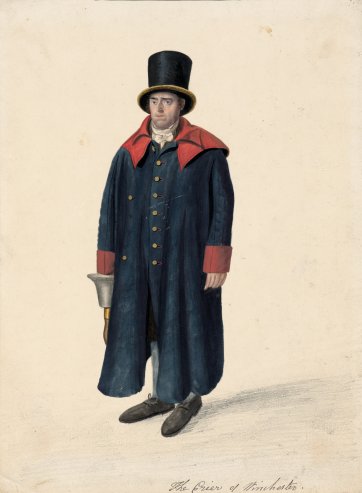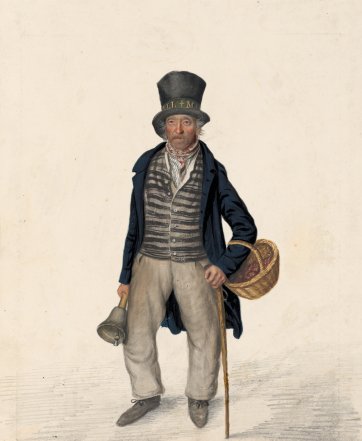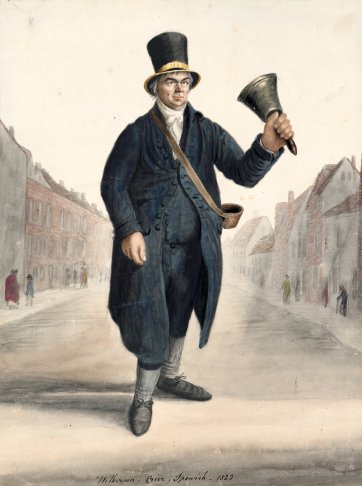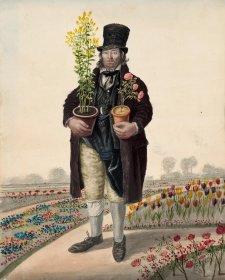For Dempsey’s people the central, national government was rather remote. Their occasional encounters with state power would have been largely through the local parish, which administered the ‘Old Poor Law’, through the corporation of their town or city, or through county magistrates and periodic assize courts.
These devolved authorities employed their own public service apparatus, and such office-holders became familiar faces within local communities. To begin with, there were beadles, parish ushers or constables like the celebrated Mr Bumble in Charles Dickens’ Oliver Twist.
Town criers or bellmen had official proclamation duties and uniforms (and, of course, bells), but they supplemented their meagre wages by acting as a private message and delivery service. Parish authorities were also responsible for public safety, law and order; Dempsey’s Scarborough constable shows that in the 1820s the old ‘watchmen of the night’ were beginning to be replaced by modern policemen.


















